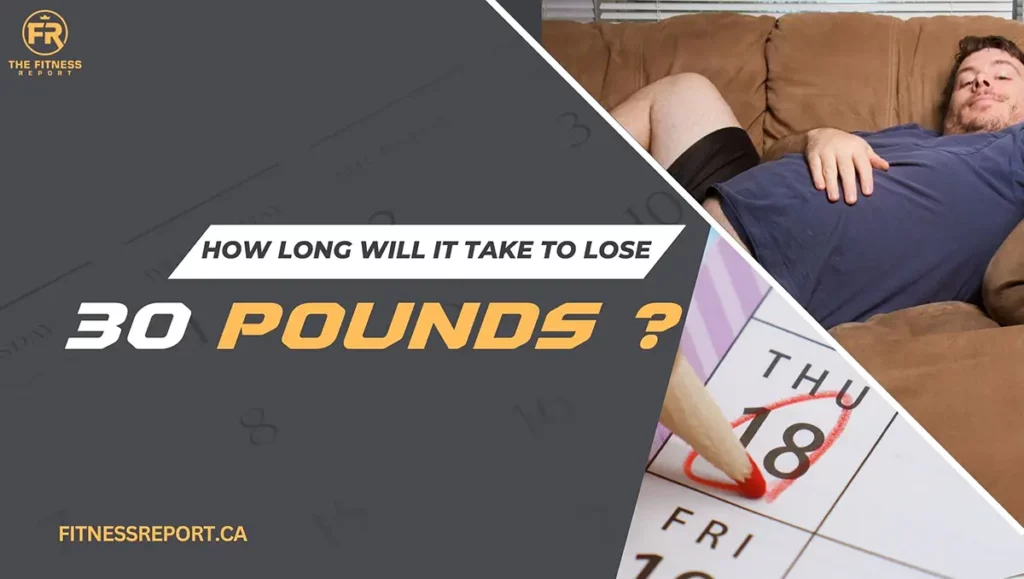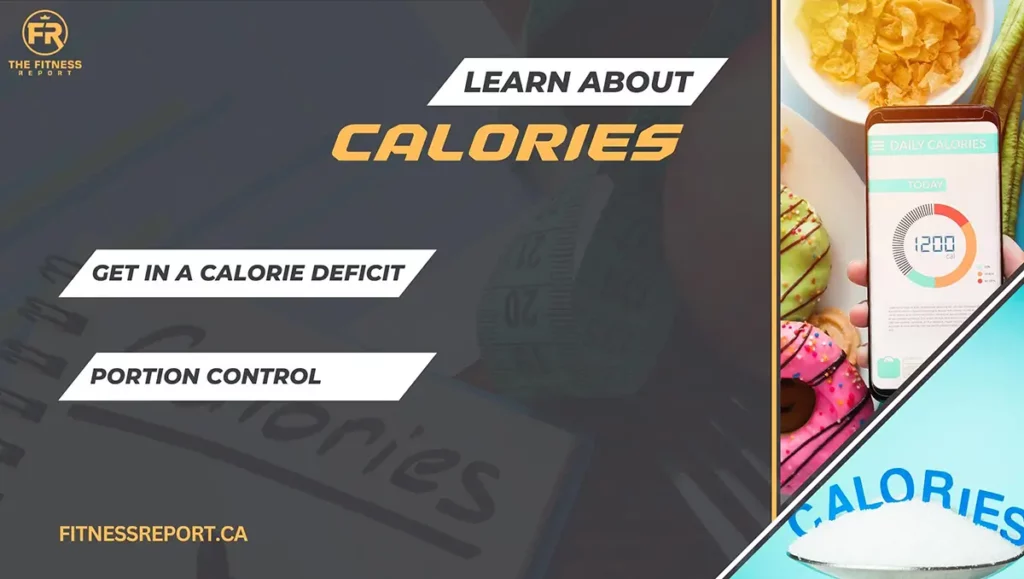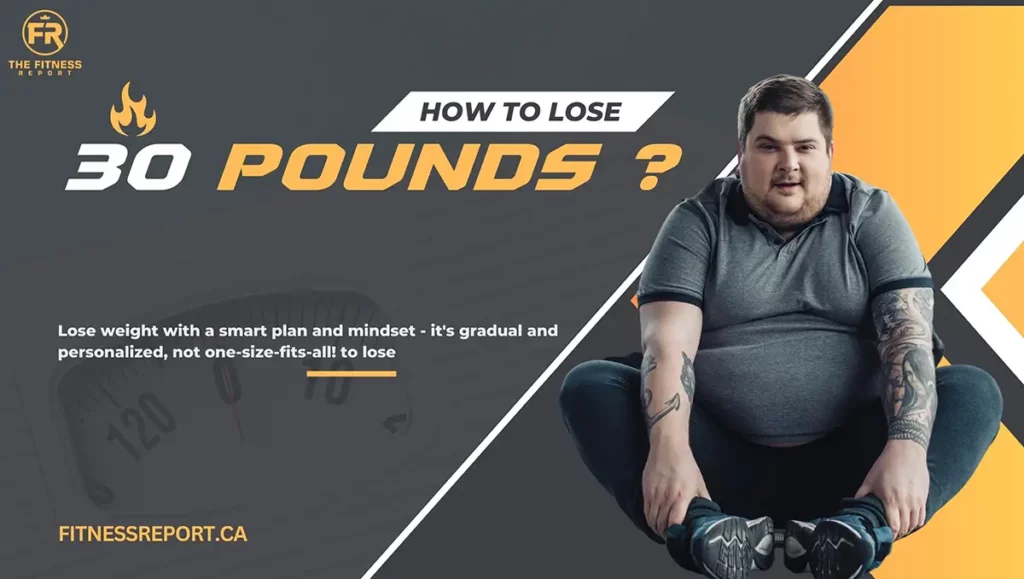How To Lose 30 Pounds? [In A Realistic Timeframe 🗓️🕒]
- How Long Will It Take To Lose 30 Pounds?
- Increase Your Activity Levels To Lose Weight
- Clean Up Your Nutrition
- Get Better Sleep + Reduce Your Stress
- What Happens To The Body When You Lose 30 pounds?
- Here Is How Long It Will Actually Take To Lose 30 Pounds
- How To Lose 30 Pounds: Frequently Asked Questions (FAQs)
If you do not know me personally, my other job is in Digital Marketing, and a big part of that consists of researching all types of content. While working on fitness-related topics, I noticed that people always look for a shortcut to losing weight fast! It drives me crazy because there is no such thing as losing weight fast. Yes, there may be some ways to drop weight very fast, but that will not be sustainable, and you can end up damaging your body in the long run.
If you are looking at this image and not understanding, it shows that more individuals are searching for how to lose weight quickly instead of looking for a longer and more sustainable option.
Weight loss can be complicated and overwhelming, but it is doable if you have a well-thought-out strategy and the right mindset. It is important to know that weight loss is a gradual process and that there is no one-size-fits-all approach if you want to lose 30 pounds.
It may take several months or even a year to reach your goal weight, depending on several factors, including your age, gender, body composition, lifestyle choices, and starting weight. You can, however, develop a long-term weight loss strategy that works for you by incorporating changes to your lifestyle, regular exercise, and healthy eating habits.
In this article, we’ll look at some effective ways to lose 30 pounds and how long it might take to get to your desired weight. In addition, we will talk about the different activities you should incorporate in your daily life to get rid of those extra pounds and ways to keep yourself motivated and on track with your weight loss journey.
How Long Will It Take To Lose 30 Pounds?

Losing any substantial amount of weight will take time and, of course, effort. Forget about dropping 30 pounds in a few weeks, and start thinking in terms of months. According to Johns Hopkins Medicine, losing 0.5 to 2 pounds per week is recommended and considered healthy weight loss, which can be achieved with lifestyle modifications.
Although, setting a specific goal can help you stay motivated and focused on your weight loss journey if you want to lose weight faster than the average rate. A common goal for weight loss is to lose 30 pounds, but this can take a long time due to several factors. Your starting weight, age, gender, metabolism, and lifestyle habits are some of these factors.
A safe and long-term weight loss rate is usually one to two pounds weekly. This means 30 pounds can be lost in 15 to 30 weeks or 4 to 7 months. However, this period is not set and can be affected by several things, such as how well you eat and exercise, how much you sleep, and any medical conditions you have. What’s important is to lose weight while maintaining a healthy lifestyle rather than starving yourself. The weight loss process has its ups and downs, and you should be ready to face them all.
Losing 30 Pounds Will Require A Lifestyle Change
It will take a significant lifestyle change to lose 30 pounds, which is no small feat. You will need to commit to adopting healthier lifestyle choices if you want to reach your weight loss objectives. These choices will enable you to create a caloric deficit and burn more calories than you consume. This means avoiding processed foods and sugar while maintaining a well-balanced diet high in protein, fiber, and healthy fats. Additionally, you will need to include regular cardio, strength training, or a combination of the two in your daily routine.
You may need to adjust your sleeping patterns, stress levels, and other aspects of your lifestyle that impact your efforts to lose weight, in addition to changing your exercise routine and diet. It might not be easy for you to make these changes, but if you have the right mindset and support, you can make a healthy lifestyle that you can stick with that will help you reach your weight loss goals and improve your overall health and well-being.
All this might sound scary to you. However, trust the process. This weight loss journey will bring discipline to your life and make you feel much better. While losing weight, you will be helping your body adopt a much healthier lifestyle in the long run. The journey will be worth it, from waking up early to going on a morning run and ending your day with a hot cup of green tea.
Increase Your Activity Levels To Lose Weight

Increasing your level of physical activity is one effective strategy for achieving weight loss goals, even though the process can be difficult. It’s important to start small and get your body moving if you’re new to exercise or haven’t exercised in a while.
The objective is to burn more calories through physical activity. Take a walk around the neighborhood, play a sport with friends, or go on a hike as a starting point. These activities are enjoyable and compatible with your way of life.
Joining A Gym: Is It Necessary?
Joining a gym, enrolling in fitness classes, or hiring a personal trainer is just a few of the many options available for increasing your level of physical activity. However, on the other hand, you don’t have to sign up for a gym membership right away. If you find it difficult to go to the gym every day, a better way is to start at home with simple bodyweight exercises like push-ups, squats, and lunges.
You can also start without spending a penny by downloading free workout routines from the internet. These free cardio and warm-up training sessions from the internet are equally helpful as a gym and will help you work on your routine.
Making physical activity a regular part of your routine is key to increasing your activity levels. Try getting at least 30 minutes of moderate exercise daily, like brisk walking, cycling, or swimming. Finding activities that you enjoy and that fit into your schedule is important if you want to reach your weight loss goals. Here is a list of simple physical activities you can start with.
- Walking to the grocery store
- Taking the stairs instead of the elevator
- Swimming or other water aerobics
- Cycling
- Hiking
- Playing recreational sports, such as basketball, softball, volleyball, or hockey.
- Using resistance bands or light weights while watching TV.
- Doing squats, push-ups or lunges, etc.
Increasing your level of physical activity is an excellent strategy for losing weight and enhancing your overall health and fitness. Start small, work up to more activities over time, and choose activities you enjoy. Consistency is essential, whether you exercise at home or in a gym, and adding a free workout routine can be a great way to stay motivated and on track. You can increase your activity levels and reach your weight loss goals with patience, determination, and a commitment to your objectives.
Clean Up Your Nutrition

Improving your diet is one of the most crucial steps to begin losing weight. This implies making certain improvements to your eating regimen and dietary patterns that will assist you with accomplishing your weight reduction objectives. To get you started, here are some easy suggestions:
Consume Less Processed Food
Sugar, unhealthy fats, and many calories are typical of processed foods. Reduce your sugary drinks, frozen meals, and processed snacks intake. This might sound difficult at first. However, after a few days of avoiding such diets, you will eventually get used to surviving without them.
Consume More Whole Foods
Natural, unprocessed foods high in fiber and nutrients are known as whole foods. Lean proteins, whole grains, fruits, and vegetables are examples. Make an effort to include more of these foods in your diet. In this case, visiting a dietitian or a professional who can check your vitals and create a healthy diet according to your body’s requirements is best advised.
Eat More Protein
Protein helps you feel full and satisfied, making it an essential nutrient for weight loss. Chicken, fish, tofu, beans, and nuts are all good protein sources.
Stay Hydrated
Stay hydrated on this weight loss journey should always be your top priority. You can avoid overeating by drinking a lot of water, which can make you feel full and keep you hydrated. Try to drink eight glasses of water a day at least.
You can begin to clean up your nutrition and make progress toward your weight loss goals by making these easy changes to your diet. Remember that it is essential to implement attainable and sustainable changes; therefore, start small and gradually transition to a healthier eating routine.
Get Better Sleep + Reduce Your Stress

For a successful weight loss journey getting enough quality sleep is essential. Due to lack of sleep, hormone regulation can be disrupted, appetite can increase, causing overeating, metabolism can slow down, muscle recovery can be hampered, and stress levels can rise. All of this can make it harder for you to lose weight. A successful weight loss journey depends on getting enough sleep and controlling stress.
Studies have demonstrated that getting sufficient rest can assist with managing chemicals that control cravings and improve your digestion. Get at least 7 to 9 hours of sleep each night to reach your weight loss goals. A regular bedtime routine can help your body know when to wind down and get ready for sleep. To help you unwind and relax, try reading, taking a bath, or meditating. This aids in inducing sleep and releases hormones that assist in weight loss.
Raising stress levels can cause an increased appetite and a desire for unhealthy foods, leading to weight gain. Try activities like yoga, deep breathing, or meditation for stress management. Taking care of yourself is important to sleep better and reduce stress. Spending time with loved ones, walking outdoors, or engaging in an active hobby should all be prioritized.
You can set yourself up for success on your weight loss journey by concentrating on getting more sleep and reducing stress. Keep in mind to be patient with yourself and make adjustments that are both long-lasting and achievable for your way of life.
Learn About Calories & How Much To Eat

Before starting your weight loss journey, there are some terms you should know. Firstly there are calories. The amount of energy in food is known as calories. Our bodies utilize the calories from food sources as energy to complete different physical and metabolic processes. Knowing how many calories we need and how many calories are in our food is important for losing or maintaining a healthy weight. Calories come from macros or macronutrients (carbohydrates, fats, proteins, etc.), and each macro has different calories. A balanced diet has the perfect ratio of macros according to your fitness goal.
Get In A Calorie Deficit
A common way of losing weight is through a calorie deficit. A calorie-deficit diet involves consuming fewer calories than the body burns each day. A calorie-deficit diet aims to create a negative energy balance, forcing the body to use stored fat as an energy source. Over time, this leads to weight loss. You can reduce your calorie intake by eating fewer calories or increase your calorie burning by exercising to achieve a calorie deficit.
Remember that a calorie-deficit diet should be long-lasting and give the body the nutrients it needs to work well. Eating too few calories or not getting enough nutrients can harm your health. A safe and effective calorie-deficit diet plan can be developed with the help of a healthcare professional or registered dietitian.
Portion Control
Apart from consuming in a deficit, portion control is essential to losing weight. You can stay within your daily calories and macronutrient goals by understanding portion sizes and monitoring your food intake.
One method for following your food intake is utilizing a food journal or an app that allows you to log and track your daily food intake. These help show how many calories you have consumed vs. your daily requirement of calories. Also, using a food scale or measuring cups can help you stick to your daily serving sizes.
Additionally, mindful eating can assist you in recognizing your body’s signals of hunger and fullness, preventing overeating. Mindful eating involves taking your time to savor each bite and paying attention to your food’s flavor, texture, and aroma. By incorporating these strategies into your weight loss plan, you can sustainably achieve your weight loss goals and develop a healthier relationship with food.
What Happens To The Body When You Lose 30 pounds?
Your body changes a lot when you lose 30 pounds. You will start noticing changes in your physical appearance, for instance, a slimmer waist and a sharper jawline, and your face fat will start to disappear. You will notice less fat under your arms and around your legs. Overall, there will be a huge difference in your physical appearance as you lose 30 LBS.
Besides physical appearance, your internal health will also feel much better. Your joints will feel stronger, you will have improved cardiovascular health, and your glucose levels will be maintained at ideal levels. You will also notice a better sleeping pattern, an energetic body, and a better thought process. With just 30 pounds off your body, your self-esteem, body image, and overall quality of life will improve drastically.
Here Is How Long It Will Actually Take To Lose 30 Pounds
Losing weight is a slow and steady process. To think that you will lose 30 pounds in a few weeks is an unrealistic belief. While losing 30 pounds, you will face many hurdles. Some days you will also feel demotivated and drained of energy. However, the process is slow and will take up to 4 to 7 months.
Keep in mind that this time frame is not fixed but is an estimation considering a strict continuous healthy weight loss plan is followed. Losing 30 pounds within 4-7 months is only achievable if you follow the correct lifestyle changes, such as being active and doing workouts, eating healthy, drinking plenty of water, etc.
How To Lose 30 Pounds: Frequently Asked Questions (FAQs)


